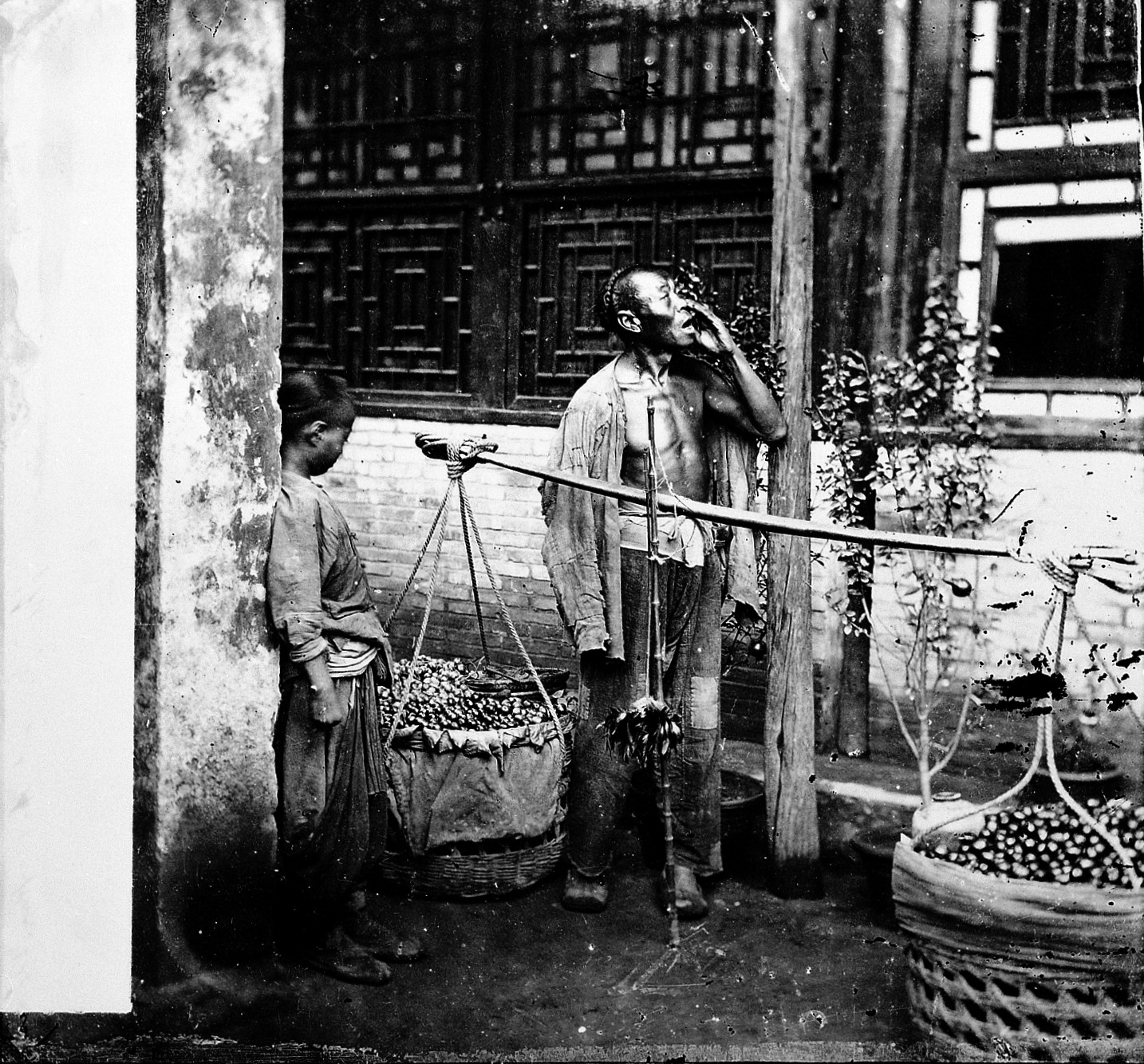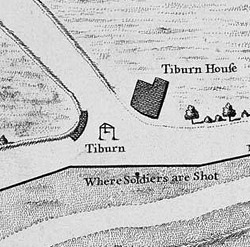|
Marcy Clay
Marcy Clay alias Jenny Fox (d. 1665), was an English thief and highwayrobber, and subject of the 1665 pamphlet ''The high-way woman, or, A true and perfect narrative of the wicked life, and deplorable death of Marcy Clay''. Biography Marcy Clay is believed to have been born in Dorset as Jenny Fox, to parents who were travelling pedlars. She began as a shoplifter in London, working with a gang of thieves and was quite successful. Due to her increasing notoriety in London, she returned to the south-west of England to engage in "country trade", stealing from markets and fairs. She later took up highway robbery, dressed as a man, at first to pay off a £30 debt. Having discovered how much more lucrative highway robbery was, she continued in this pursuit. She became famous in her time as the subject of an anonymously written pamphlet, recording her crimes and praising her skill with sword and pistol. Clay eventually returned to London to take up shoplifting again, and the pamphlet c ... [...More Info...] [...Related Items...] OR: [Wikipedia] [Google] [Baidu] |
Highwayman
A highwayman was a robber who stole from travellers. This type of thief usually travelled and robbed by horse as compared to a footpad who travelled and robbed on foot; mounted highwaymen were widely considered to be socially superior to footpads. Such criminals operated until the mid or late 19th century. Highwaywomen, such as Katherine Ferrers, were said to also exist, often dressing as men, especially in fiction. The first attestation of the word ''highwayman'' is from 1617. Euphemisms such as "knights of the road" and "gentlemen of the road" were sometimes used by people interested in romanticizing (with a Robin Hood–esque slant) what was often an especially violent form of stealing. In the 19th-century American West, highwaymen were sometimes known as ''road agents''. In Australia, they were known as bushrangers. Robbing The great age of highwaymen was the period from the Restoration in 1660 to the death of Queen Anne in 1714. Some of them are known to have been disban ... [...More Info...] [...Related Items...] OR: [Wikipedia] [Google] [Baidu] |
Pamphlet
A pamphlet is an unbound book (that is, without a hard cover or binding). Pamphlets may consist of a single sheet of paper that is printed on both sides and folded in half, in thirds, or in fourths, called a ''leaflet'' or it may consist of a few pages that are folded in half and saddle stapled at the crease to make a simple book. For the "International Standardization of Statistics Relating to Book Production and Periodicals", UNESCO defines a pamphlet as "a non-periodical printed publication of at least 5 but not more than 48 pages, exclusive of the cover pages, published in a particular country and made available to the public" and a book as "a non-periodical printed publication of at least 49 pages, exclusive of the cover pages". The UNESCO definitions are, however, only meant to be used for the particular purpose of drawing up their book production statistics. Etymology The word ''pamphlet'' for a small work (''opuscule'') issued by itself without covers came into Middl ... [...More Info...] [...Related Items...] OR: [Wikipedia] [Google] [Baidu] |
Dorset
Dorset ( ; archaically: Dorsetshire , ) is a county in South West England on the English Channel coast. The ceremonial county comprises the unitary authority areas of Bournemouth, Christchurch and Poole and Dorset (unitary authority), Dorset. Covering an area of , Dorset borders Devon to the west, Somerset to the north-west, Wiltshire to the north-east, and Hampshire to the east. The county town is Dorchester, Dorset, Dorchester, in the south. After the Local Government Act 1972, reorganisation of local government in 1974, the county border was extended eastward to incorporate the Hampshire towns of Bournemouth and Christchurch. Around half of the population lives in the South East Dorset conurbation, while the rest of the county is largely rural with a low population density. The county has a long history of human settlement stretching back to the Neolithic era. The Roman conquest of Britain, Romans conquered Dorset's indigenous Durotriges, Celtic tribe, and during the Ear ... [...More Info...] [...Related Items...] OR: [Wikipedia] [Google] [Baidu] |
Peddler
A peddler, in British English pedlar, also known as a chapman, packman, cheapjack, hawker, higler, huckster, (coster)monger, colporteur or solicitor, is a door-to-door and/or travelling vendor of goods. In England, the term was mostly used for travellers hawking goods in the countryside to small towns and villages. In London, more specific terms were used, such as costermonger. From antiquity, peddlers filled the gaps in the formal market economy by providing consumers with the convenience of door-to-door service. They operated alongside town markets and fairs where they often purchased surplus stocks which were subsequently resold to consumers. Peddlers were able to distribute goods to the more geographically-isolated communities such as those who lived in mountainous regions of Europe. They also called on consumers who, for whatever reason, found it difficult to attend town markets. Thus, peddlers played an important role in linking these consumers and regions to wider trade ... [...More Info...] [...Related Items...] OR: [Wikipedia] [Google] [Baidu] |
Shoplifting
Shoplifting is the theft of goods from an open retail establishment, typically by concealing a store item on one's person, in pockets, under clothes or in a bag, and leaving the store without paying. With clothing, shoplifters may put on items from the store and leave the store wearing the clothes. The terms ''shoplifting'' and ''shoplifter'' are not usually defined in law. The crime of shoplifting generally falls under the legal classification of larceny. Shoplifting is distinct from burglary (theft by breaking into a closed store), robbery (stealing by threatening or engaging in violent behavior), or armed robbery (stealing by using a weapon). In the retail industry, the word '' shrinkage'' (or ''shrink'') can be used to refer to merchandise lost by shoplifting, but the word also includes loss by other means, such as waste, uninsured damage to products and theft by store employees. Shoplifters range from amateurs acting on impulse, to career criminals who habitually engage ... [...More Info...] [...Related Items...] OR: [Wikipedia] [Google] [Baidu] |
London
London is the capital and largest city of England and the United Kingdom, with a population of just under 9 million. It stands on the River Thames in south-east England at the head of a estuary down to the North Sea, and has been a major settlement for two millennia. The City of London, its ancient core and financial centre, was founded by the Romans as '' Londinium'' and retains its medieval boundaries.See also: Independent city § National capitals The City of Westminster, to the west of the City of London, has for centuries hosted the national government and parliament. Since the 19th century, the name "London" has also referred to the metropolis around this core, historically split between the counties of Middlesex, Essex, Surrey, Kent, and Hertfordshire, which largely comprises Greater London, governed by the Greater London Authority.The Greater London Authority consists of the Mayor of London and the London Assembly. The London Mayor is distinguished fr ... [...More Info...] [...Related Items...] OR: [Wikipedia] [Google] [Baidu] |
Tyburn
Tyburn was a manor (estate) in the county of Middlesex, one of two which were served by the parish of Marylebone. The parish, probably therefore also the manor, was bounded by Roman roads to the west (modern Edgware Road) and south (modern Oxford Street), the junction of these was the site of the famous Tyburn Gallows (known colloquially as the "Tyburn Tree"), now occupied by Marble Arch. For this reason, for many centuries, the name Tyburn was synonymous with capital punishment, it having been the principal place for execution of London criminals and convicted traitors, including many religious martyrs. It was also known as 'God's Tribunal', in the 18th century. Tyburn took its name from the Tyburn Brook, a tributary of the River Westbourne. The name Tyburn, from Teo Bourne, means 'boundary stream',Gover, J. E. B., Allen Mawer and F. M. Stenton ''The Place-Names of Middlesex''. Nottingham: English Place-Name Society, The, 1942: 6. but Tyburn Brook should not be confused wit ... [...More Info...] [...Related Items...] OR: [Wikipedia] [Google] [Baidu] |
Newgate Prison
Newgate Prison was a prison at the corner of Newgate Street and Old Bailey Street just inside the City of London, England, originally at the site of Newgate, a gate in the Roman London Wall. Built in the 12th century and demolished in 1904, the prison was extended and rebuilt many times, and remained in use for over 700 years, from 1188 to 1902. For much of its history, a succession of criminal courtrooms were attached to the prison, commonly referred to as the "Old Bailey". The present Old Bailey (officially, Central Criminal Court) now occupies much of the site of the prison. In the late 1700s, executions by hanging were moved here from the Tyburn gallows. These took place on the public street in front of the prison, drawing crowds until 1868, when they were moved into the prison. History In the early 12th century, Henry II instituted legal reforms that gave the Crown more control over the administration of justice. As part of his Assize of Clarendon of 1166, he requi ... [...More Info...] [...Related Items...] OR: [Wikipedia] [Google] [Baidu] |
1665 Deaths
Events January–March * January 5 – The ''Journal des sçavans'' begins publication of the first scientific journal in France. * February 15 – Molière's comedy '' Dom Juan ou le Festin de pierre'', based on the Spanish legend of the womanizer Don Juan Tenorio and Tirso de Molina's Spanish play '' El burlador de Sevilla y convidado de piedra'', premieres in Paris at the Théâtre du Palais-Royal''. * February 21 – In India, Shivaji Bhonsale of the Maratha Empire captures the English East India Company's trading post at Sadashivgad (now located in the Indian state of Karnataka). * February – In England, Dr. Richard Lower performs the first blood transfusion between animals. According to his account to the Royal Society journal ''Philosophical Transactions'' in December, Dr. Lower "towards the end of February... selected one dog of medium size, opened its jugular vein, and drew off blood, until its strength was nearly gone. Then, to make ... [...More Info...] [...Related Items...] OR: [Wikipedia] [Google] [Baidu] |
English Highwaymen
English usually refers to: * English language * English people English may also refer to: Peoples, culture, and language * ''English'', an adjective for something of, from, or related to England ** English national identity, an identity and common culture ** English language in England, a variant of the English language spoken in England * English languages (other) * English studies, the study of English language and literature * ''English'', an Amish term for non-Amish, regardless of ethnicity Individuals * English (surname), a list of notable people with the surname ''English'' * People with the given name ** English McConnell (1882–1928), Irish footballer ** English Fisher (1928–2011), American boxing coach ** English Gardner (b. 1992), American track and field sprinter Places United States * English, Indiana, a town * English, Kentucky, an unincorporated community * English, Brazoria County, Texas, an unincorporated community * Englis ... [...More Info...] [...Related Items...] OR: [Wikipedia] [Google] [Baidu] |






